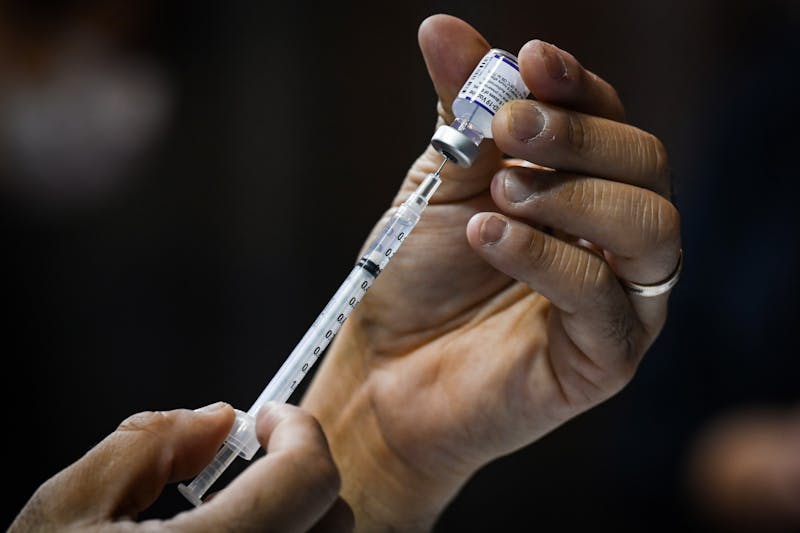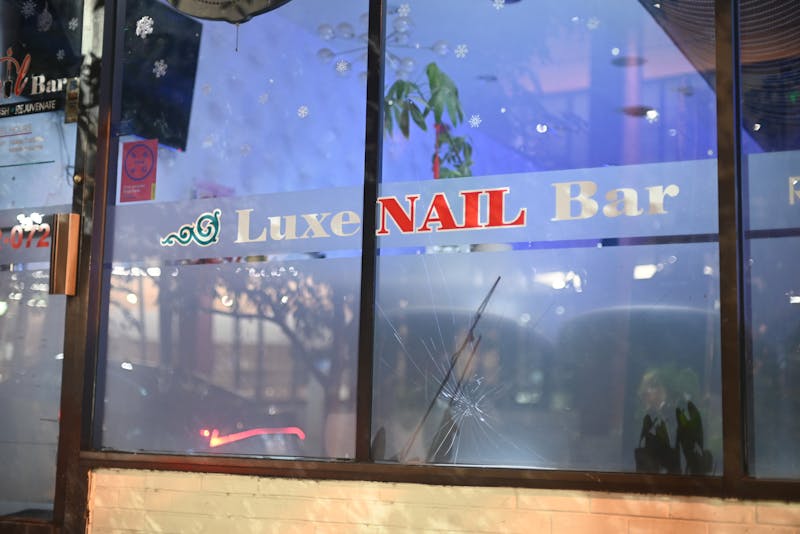
The family of Sarah Katz — a Penn student with a heart condition who died in Sept. 2022 — has settled a lawsuit against Panera Bread.
Credit: Anna VazhaeparambilThe family of Sarah Katz — a Penn student with a heart condition who died in September 2022 — has settled a lawsuit against Panera Bread that alleged that she died after drinking its Charged Lemonade.
Katz, who was a College junior at the time of her death, suffered from a heart condition and allegedly went into cardiac arrest hours after drinking a 30-ounce Charged Lemonade — a highly caffeinated beverage from Panera. Her family filed a wrongful death lawsuit against the chain last October, the first of four lawsuits that Panera has faced over the Charged Lemonade drink.
The settlement was reached days before the Katz trial was scheduled to begin, with jury selection slated to occur later this week.
Elizabeth Crawford, the lawyer representing the Katz family, told The Daily Pennsylvanian that — while the Katz family's lawsuit has been resolved — she could not provide any details about the settlement. Crawford, who also represents at least two of the other plaintiffs in cases against Panera, added that the other related cases against Panera have not been settled.
Panera Bread did not respond to a request for comment for this article.
Katz was diagnosed with long QT syndrome type 1 as a child, a rare disorder of the heart’s electrical system that can lead to dangerous heart rhythms and sudden cardiac arrest. Crawford said that Katz was careful to avoid the consumption of any product that might cause a medical reaction — including energy drinks, which she avoided at the recommendation of her doctors.
“She was very vigilant about her heart condition, [and] she managed it with medication. She went to her cardiac appointments, and she followed her doctor’s advice,” Crawford told the DP last year.
The lawsuit alleged that the dangers of the Charged Lemonade were not made sufficiently available to customers.
According to the lawsuit, the Charged Lemonade was advertised as “plant-based and clean” and was on sale beside “non-caffeinated and/or less caffeinated drinks” at the Panera at 200 S. 40th St. on Penn’s campus.
However, a 30-ounce Charged Lemonade contained 390 milligrams of caffeine, more than Panera’s dark roast coffee and more than the combined caffeine levels of a Red Bull and Monster Energy drink. The recommended daily dose of caffeine for healthy individuals is 400 milligrams.
Crawford said at the time of filing that the family filed the lawsuit in hopes of raising awareness about the drink’s contents, removing it from Panera’s shelves, and urging the Food and Drug Administration to better regulate energy drinks. Manufacturers are currently allowed to include unlimited amounts of caffeine in energy drinks by classifying them as supplements, according to Crawford.
In October of last year, all Panera locations began displaying increased warnings about their Charged Lemonade’s caffeine content. The Panera website was also updated to state that the drink is not recommended for children, people sensitive to caffeine, and pregnant or nursing women.
In May of this year, Panera stopped selling Charged Lemonades nationwide following the series of lawsuits. Panera said that the decision to discontinue the beverage was the result of a “recent menu transformation.”
Another wrongful death lawsuit was filed by the family of Dennis Brown, a 46-year-old man with a chromosomal deficiency disorder and developmental delays who died from cardiac arrest after drinking three Charged Lemonades. Two other lawsuits alleged that the Charged Lemonade caused permanent heart injuries in previously healthy people.
Katz, who grew up in Jersey City, N.J., was 21 years old at the time of her death. She majored in international relations and health and societies with a minor in East Asian languages and civilizations.
Katz was very involved in the Penn community, serving as membership coordinator and CPR training project chair in the Student Committee on Undergraduate Education, a student leader in the John Marshall Pre-Law Honor Society, a member of Penn Hillel, and social chair of Sigma Kappa sorority.
She also worked as a research assistant at the Children’s Hospital of Philadelphia and served as a Red Cap Ambassador with the American Heart Association.
The Daily Pennsylvanian is an independent, student-run newspaper. Please consider making a donation to support the coverage that shapes the University. Your generosity ensures a future of strong journalism at Penn.
Donate











